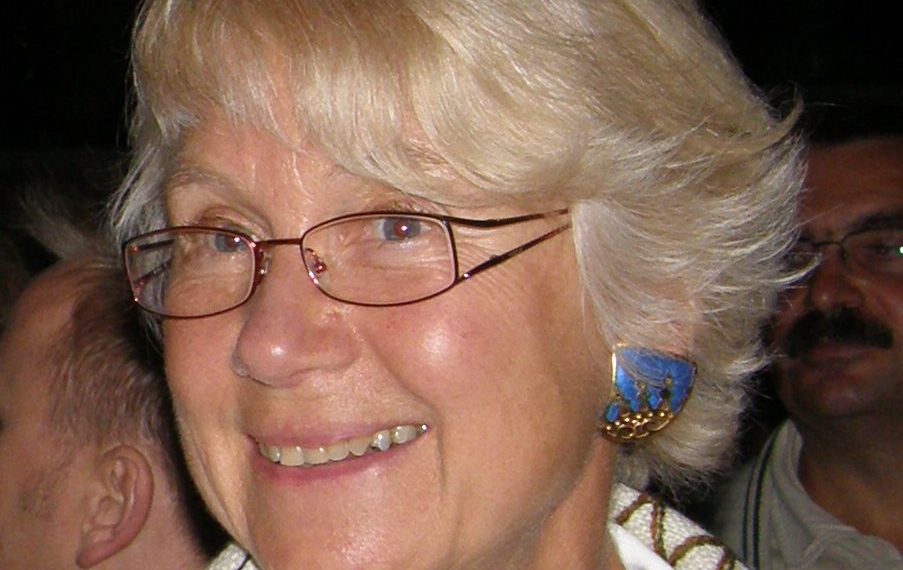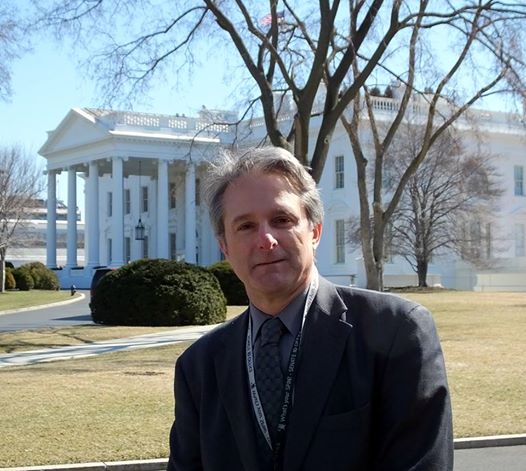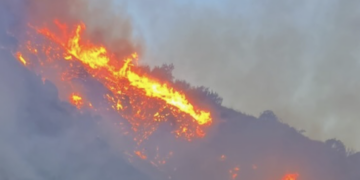USAGM Watch Commentary
Mari-Ann Kelam, a leader in the Estonian-American community, Estonian politician, former Estonian Foreign Ministry spokesperson, and former two-time member of the Estonian Parliament, objected in a Facebook post to “both the tone and the facts” of the Voice of America VOA English News report about Vladimir Putin’s Russia, Ukraine, and Estonian-Russian relations.
Mari-Ann Kelam criticized on her Facebook page a VOA English service January 23, 2023 report titled, “Russia, Estonia Expel Each Other’s Ambassadors. The subtitle of the VOA English News report on Facebook read: “Moscow accuses Tallinn of ‘total Russophobia.”
Very disappointing article about this from the VOA (Voice of America) both the tone and the facts. Estonia was NOT a part of the Soviet Union!!! Estonia, Latvia, and Lithuania were OCCUPIED by the Soviet Union for half a century under terms of the Hitler-Stalin Pact of August 31, 1939!!! [The Hitler-Stalin Pact, also known as the Molotov–Ribbentrop Pact, was signed in Moscow on August 23, 1939 and led to the outbreak of World War II, with Nazi Germany’s attack on Poland on September 1, 1939 and Soviet Russia’s invasion of eastern Poland on September 17, 1939.] Mari-Ann Kelam, Estonian-American leader, Estonian politician, former Estonian Foreign Ministry spokesperson and two-time former member of the Estonian Parliament.
The United States government has never recognized that Estonia, Latvia, and Lithuania were part of the Soviet Union and regarded them as independent states illegally occupied and annexed by Soviet Russia. During the entire period of the Soviet occupation of the three countries, the United States maintained diplomatic relations with the governments-in-exile of the Baltic States. The June 1940 occupation by the Soviet army of Estonia, Latvia, and Lithuania was condemned in the Welles Declaration and led to the U.S. government’s refusal to diplomatically recognize their subsequent annexation into the Soviet Union.
In a twist of historical irony, the principal author of the Welles Declaration, Under Secretary of State Sumner Welles, warned the Roosevelt White House in a secret memo in 1943 that John Houseman, who was later regarded as the first Voice of America director although the Voice of America name was not officially used until after World War II, and other officials in charge of the early VOA broadcasts, were hiring pro-Soviet communists. His warning led to the resignation of Houseman and a few other officials, but many pro-Kremlin VOA managers and broadcasters kept their jobs until they were forced out after the war by the Truman administration. The Reagan administration removed the last remaining restrictions on VOA reporting about Soviet and other communist human rights abuses. These restrictions did not apply to Cold War Radio Free Europe (RFE) and Radio Liberty (RL) broadcasts, which originated in Munich, West Germany.
This part of VOA’s past is largely unknown to most current VOA journalists. VOA leaders covered up this history and presented Houseman and other VOA’s “founding fathers” as promoters of truthful journalism.The initial group of officials in charge of VOA and the journalists they hired covered up Stalin’s crimes even for several years after the end of World War II.
Mari-Ann Kelam was a war refugee raised in the United States by Estonian parents who had survived World War II. She served as Vice President of the Estonian American National Council during the last years of the Soviet Union. After Estonia regained independence, Ms. Kelam moved to Estonia and worked for the Estonian Ministry of Foreign Affairs. She also served for several years in the Estonian Parliament. She and her husband, Tunne-Väldo Kelam, a former member of the Estonian Parliament and a former member of the European Parliament, are still active in Estonian and European politics today. They supported rebroadcasting of Voice of America and Radio Free Europe/Radio Liberty (RFE/RL) programs on local stations in Estonia in the late 1990s and the early 2000s.
It was not unusual for Americans of Baltic origin to return to their native countries after the Soviet Union collapsed and accept high-level government positions after these nations regained independence. Former President of Estonia Toomas Hendrik Ilves was a journalist educated in the United States and worked for Radio Free Europe as the director of its Estonian service. Former Latvian President Vaira Vīķe-Freiberga grew up in Canada. She served as a member of the International Advisory Board for the Voice of America’s multimedia and multilingual opinion magazine New Europe Review from 2004 to 2006. Former Czech President Vaclav Havel was also a member of VOA’s New Europe Review advisory board.
The Voice of America is currently managed by the U.S. Agency for Global Media (USAGM), now led by former VOA director Amanda Bennett. In recent years there has been an unprecedented number of complaints about Voice of America programs from leaders of ethnic communities in the United States and political refugees from China, Iran, Cuba, Tigrayans in Ethiopia, and immigrants from other countries ruled by repressive regimes.
The quality, accuracy, and balance of VOA programs in English and in many of VOA’s foreign language services has declined under the current and recent management teams. VOA employed in its Russian and Spanish services some journalists who had worked formerly for Russian state media channels and displayed on social media platforms their former Russian work. A Moscow-based Spanish journalist who did freelance work for the Voice of America English service was expelled from Ukraine last year and later arrested in Poland. VOA reported that the journalist categorically denies all spying for Russia accusations made against him by Ukrainian and Polish authorities.
The Washington Post reported recently that the Voice of America management censored last May a VOA Vietnamese service news video after Vietnam’s communist embassy in Washington complained about it to VOA’s current acting Director Yolanda Lopez.
VOICE OF AMERICA VOA ENGLISH NEWS REPORT
Russia, Estonia Expel Each Other’s Ambassadors
January 23, 2023 12:50 PM
[This copy of the VOA News report does not include photos which are included in the report of on the VOA website.]WASHINGTON — Russia and neighboring Estonia, a member of the NATO military alliance, said Monday they are expelling each other’s ambassadors by February 7 in a new display of rancor over Moscow’s invasion of Ukraine.
Both Russia and Estonia disparaged each other as they announced that their diplomatic missions in Moscow and Tallinn would be downgraded and headed by charge d’affaires instead of ambassadors.
The Russian Foreign Ministry summoned Estonian Ambassador Margus Laidre and ordered him to leave the country in two weeks. Moscow said it was expelling Laidre in retaliation of Estonia’s “new unfriendly step to radically reduce the size of the Russian Embassy in Tallinn.”
In turn, Estonia said it was expelling Russian Ambassador Vladimir Lipayev.
Earlier this month, Estonia ordered Russia to cut its embassy staff in Tallinn to eight diplomats and 15 administrative, technical and service staff members in order to reach parity with the size of its staff in Moscow.
Estonia, once part of the Soviet Union, said January 11 it was reducing its bilateral relations with Moscow “to the absolute minimum” because of Moscow’s invasion of Ukraine last February.
The Russian Foreign Ministry said Monday that “the Estonian leadership has purposefully destroyed the entire range of relations with Russia.”
“Total Russophobia, the cultivation of hostility towards our country have been elevated by Tallinn to the rank of state policy,” the statement read.
It is the first time that Russia has expelled the ambassador of a European Union country since its invasion of Ukraine.
In October, Estonia’s parliament adopted a statement declaring Russia a “terrorist regime.”
Meanwhile, Estonia, Latvia and their Baltic neighbor, Lithuania, have pushed for Germany to send its Leopard 2 tanks to Ukraine to help fend off Russia’s invasion.
Latvia had told its ambassador to Russia to leave Moscow by February 27. Lithuania threw out its Russian envoy in April and downgraded diplomatic representation after Ukraine accused Russian forces of killing civilians in the town of Bucha.










